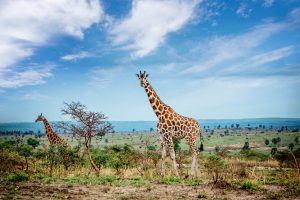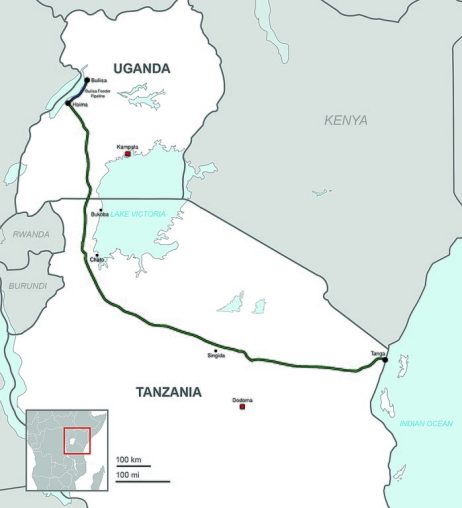On October 12, 2021, President Xi Jinping of China made a remarkable speech. He made the speech during a virtual leaders’ summit on the 15th Conference of Parties (COP) on the Convention of Biological Diversity (CBD).
China currently holds the presidency of the CBD, and Xi was the host of the virtual meeting. He noted the following, “All beings flourish when they live in harmony and receive nourishment from nature. Biodiversity makes earth full of vigor and vitality, and lays the foundation for human survival and development.”
He added, “Protecting biodiversity helps protect Earth, our common homeland, and contributes to humanity’s sustainable development.”
After reflecting that countries “need to solve the problems brought by industrial civilization, keep human activities within the limits of the ecology and environment, and carry out holistic conservation,” Xi made the following promise: to “let the green transition drive our efforts to facilitate global sustainable development.”
“We need to build a low-carbon and circular economic system,” he noted.
In Uganda, however, Chinese oil and construction companies that are operating in the country have not aligned their actions with the aforementioned promises from Xi. As countries head to the second part of the CBD COP we hope that China will truly lead on ending the biodiversity destruction that is ongoing in Uganda.
The CBD COP is being held in two parts. Part 1 was held in October 2021 – when Xi made his speech – while Part 2 will be held between December 7 and 19. The COP will be hosted by China, though Part 2 is being convened in Montreal, Canada.
Yet even as the CBD COP was in session, construction work and oil exploitation efforts will be ongoing in Uganda’s Albertine Rift. Currently, Chinese companies such as China National Offshore Oil Corporation (CNOOC) are engaged in efforts to extract oil in Uganda by 2025. CNOOC is engaged in efforts to develop the Kingfisher oil project, under which oil is expected to be extracted from the Lake Albert area.
Together with TotalEnergies, among others, CNOOC is also expected to commence construction of the East African Crude Oil Pipeline (EACOP) in 2023. If constructed, the 1,443 kilometer crude export pipeline will affect nearly 2,000 square kilometers of protected areas, a third of which are habitats for endangered species such as elephants.
Aside from CNOOC, China Communications Construction Company (CCCC) and others have built roads in one of Uganda’s major national parks, Murchison Falls. It is one of Uganda’s most biodiverse, oldest, and most visited parks.
Information from the Uganda Wildlife Authority (UWA), the government authority that manages Uganda’s national parks, indicates Murchison Falls National Park is home to 2,700 elephants, 15,800 buffaloes, 1,950 Rothschild’s giraffes, and over 150,000 kobs. CCCC has constructed roads and bridges to support oil extraction activities in the park.
A Chinese bank, the Industrial and Commercial Bank of China (ICBC), is also acting as a financial adviser for the EACOP project. After over 24 banks, especially from Europe, indicated that they will not fund the EACOP, Chinese banks are being looked at as the last resort financiers for the controversial project.
CNOOC and CCCC’s activities are having and could continue to have major consequences for biodiversity conservation. This is because the companies’ activities are ongoing in the Albertine Rift.
The Rift, which was formed millions of years ago and is 1,000 km long, is the western branch of the East African Rift. It covers parts of Uganda, Tanzania, and the Democratic Republic of Congo, among other East African countries.
The Rift is one of Africa’s most biodiverse areas. CNOOC’s own Environmental and Social Impact Assessment (ESIA) noted that the area “is recognised as: part of the Eastern Afromontane Biodiversity Hotspot (CI 2014); an Endemic Bird Area (Stattersfield et al. 1998); a Key Biodiversity Area (IUCN 2010); and within three globally important ecoregions…”
The Albertine Rift hosts over 50 percent of Africa’s bird species, 39 percent of Africa’s mammal species, and 19 percent of the continent’s amphibians. The Albertine Rift is also home to 14 percent of mainland Africa’s reptiles and plants. Notably, the Albertine Rift has the highest rate of vertebrae endemism in mainland Africa.
Moreover, species such as African forest elephants, chimpanzees, Eastern gorillas, Nahan’s francolin (a bird), and others that are listed as threatened by the International Union for the Conservation of Nature (IUCN) are found in the Rift.
Oil infrastructural developments such as oil roads in the Rift have led to impacts including habitat loss especially for arboreal animals, as well as killing of animals such as the endangered chimpanzees due to motor accidents and others. Four of these roads, which have a combined length of 142 km, are all located in Murchison Falls National Park.
In relation to oil extraction in the Albertine Rift, the following impacts under CNOOC’s Kingfisher oil extraction and the EACOP projects are expected or projected: habitat loss (both aquatic and on land), pollution of lakes such as Albert and Victoria from waste run-off, and failure to compact soils to their original state, thus affecting plants’ ability to grow. Other impacts include introduction of competitive plant species and oil spills that could pollute ground and surface water among others.
The fisheries sector, which employs over 5 million people in Uganda, and from which $156 billion per year could be earned (from the sale of fish maws, whose market is China), has also been endangered by CNOOC’s Kingfisher and EACOP projects. This is recognized in the Kingfisher and EACOP ESIA reports, which note that pollution could hurt the fisheries of Lake Albert.
The social and biodiversity concerns over the oil pipeline led to anti-EACOP student protests in October 2022 and caused 2,591 oil-impacted communities to write to Ugandan and international human rights bodies as well as the Chinese Ministry of Commerce in May and June 2022.
Xi, Chinese government agencies, and financial institutions should listen to local voices and champion biodiversity conservation by investing in a green transition, instead of polluting fossil fuel projects.


































